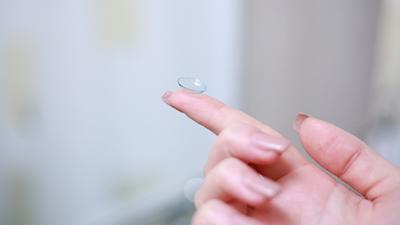Showering and sleeping with contact lenses increase risk of sight-threatening infection

Showering and sleeping with contact lenses in are the biggest personal hygiene causes of microbial keratitis, a sight-threatening complication which affects thousands of patients every year, according to a new study by Southampton eye experts.
In a case-control study, published in BMJ Open Ophthalmology, University of Southampton researchers carried out interviews with contact lens wearers presenting with microbial keratitis and contact lens wearers without the infection. They were asked to identify lens wear practices, including lens type, hours of wear, personal hygiene and sleeping and showering in lenses.
The findings showed the effect of acquiring infection with frequency of showering whilst wearing lenses. Patients who showered with lenses in were seven times more likely to acquire microbial keratitis, while patients who slept with lenses in were three times more likely to acquire the infection. Age was also a factor with those in aged between 25 and 39 years old being at higher risk.
Contact lens wear is very common worldwide, with an estimated four million wearers in the UK alone. Contact lens related eye infections are very frequent and important cause for unilateral visual impairment. It is known that personal hygiene contributes to contact lens infections, but it is not clear which factors and habits contribute to a contact lens-related corneal infection. This is the first study to identify and grade the different personal hygiene practice.
Parwez Hossain, Associate Professor in Ophthalmology, who led the study said: “Contact lens wear is safe providing wearers carefully follow personal hygiene advice issued by their Optometrist or Contact Lens Practioner”
He added that more needs to be done to improve the information contact lens wearers receive about personal hygiene practices and risk of eye infections.